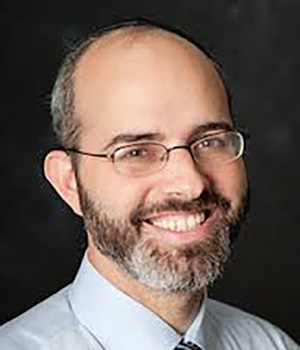
May these words of Torah serve as a merit le’iluy nishmat Menachem Mendel ben Harav Yoel David Balk, a”h.
This week we learned Avoda Zara 55. These are some highlights.
Avoda Zara 55: By mistake I closed the healing blessing of Shemoneh Esrei with “rofei chol basar.” Do I need to repeat the blessing?
A man was praying the silent Amidah and made a mistake. When reciting the blessing about healing he mistakenly recited the wrong closing. The healing blessing of Shemoneh Esrei is supposed to close with “Baruch ata Hashem, Rofei cholei amo Yisrael, Blessed are You, Hashem, Who heals the sick of His nation Israel.” After going to the bathroom we recite the Asher Yatzar blessing that thanks the Almighty for healing us, and we close that blessing with “Blessed are You, Hashem, Who heals all flesh and performs wonders, Baruch ata Hashem, rofei chol basar umafli la’asot.” Our individual got confused. While reciting Shemoneh Esrei he closed his healing prayer with “Baruch ata Hashem, rofei chol basar umafli la’asot.” Is this a material change? Does he need to recite the blessing anew?
Rav Chaim Berlin, obm (Otzar Rabbi Chaim Berlin, Orach Chaim Siman 5), discusses these two blessings. Why do we close the healing prayer of Shemoneh Esrei with “Rofei cholei amo Yisrael” while we end the Asher Yatzar prayer with “Rofei chol basar umafli la’asot”? Rav Chaim Berlin explains that the reason for the difference is a story on our daf. Zunin once asked Rabbi Akiva, “If Hashem hates idolatry, why is it that I see people with broken legs enter churches and exit with healed legs? Why would the Almighty allow the idolatrous faiths to perform miracles?” Rabbi Akiva explained with a parable. “Imagine a man who is known to be honest and faithful. People deposit valuables in his charge, without witnesses, and he always returns them. One man would always deposit valuables to this watchman in the presence of witnesses. One time, the man forgot. He deposited a valuable without witnesses. The wife of the watchman advised him to take the valuable for himself. The man responds to her, “Should we forfeit our good name just because that foolish man made a mistake? We have been honest. We should continue to be honest.” So it is with misfortunes. Hashem sends angels to bring the misfortunes to a person. Hashem tells the angel, you are to go at this time and leave at the following time. The angel has to swear that he will fulfill the commands of Hashem. The travails fulfill the instructions they were given, even though the man walked into a church. They leave at the exact moment they are supposed to leave. The angel in charge of the suffering says to himself, “Should I lose my good name and not fulfill my promise, just because this man was foolish and walked into the church now?” Rav Berlin points out, who would go into a church and exit with healing? Presumably, it is gentiles.The Gemara is teaching that when Hashem sends suffering and travails to gentiles, there is a time limit to the misfortune. When the time for the misfortune to end arrives, Hashem makes the misfortune exit. This is the meaning of the phrase “Rofei chol basar umafli la’asot.” Hashem makes the suffering end when the time for the travails to exit arrives. Hashem loves the Jewish nation and treats us differently. His love for us leads Him to heal our suffering and misfortunes even before their time has arrived. He heals us before the time He had told the angel to leave by. Hence, in our blessing of healing in Shemoneh Esrei we say “Rofei cholei amo Yisrael,” He Himself heals the sick of His nation Israel early. According to this analysis, if a man mistakenly said “Rofei chol basar umafli la’aso” instead of “Rofei cholei amo Yisrael” he has materially changed the blessing. He recited a blessing that is fitting for the nations, but that is not a fit for us. He should have to recite the prayer again and close with the correct closing.
The Steipler Gaon disagrees with Rav Chaim Berlin. In Karyana D’Igrata (Chelek Alef page 107) he argues that Jews are not healed more than gentiles. Midrash Rabbah (Vayeshev parsha 88) teaches that, really, gentiles should never get sick. Esav took this world. Jacob chose the world to come. The only reason gentiles ever get ill, in this realm, is to prevent them from mocking us by showing that they are healthier than we are. Essentially, gentiles should never fall ill in this realm of existence. In light of this midrash, there is no difference between the healing of the gentiles and the healing of Israel. We are not healed more than them. According to the Steipler, it would seem that if a person mistakenly said “Rofei chol basar umafli la’asot” instead of “Rofei cholei amo Yisrael” he would not have to redo the prayer. (Chashukei Chemed)
By Rabbi Zev Reichman
Rabbi Zev Reichman teaches Daf Yomi in his shul, East Hill Synagogue.










